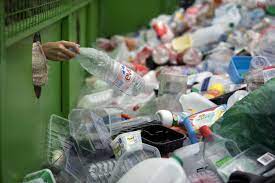Plastics recycling is a essential procedure in today’s planet, due to the enviromentally friendly problems linked to plastic squander. Here’s an extensive help guide comprehending plastic recycling:
1. Kinds of Plastic:
Plastics are classified according to their resin regulations, which range from Dog (Polyethylene Terephthalate) to PVC (Polyvinyl Chloride). Each type requires distinct recycling procedures.
Family pet plastics, generally found in h2o containers, are widely re-cycled, when PVC plastics, employed in piping and product packaging, create obstacles because of the make up.
2. Recycling Process:
Selection: Plastic squander is accumulated from numerous sources, which include homeowners, enterprises, and recycling locations.
Selecting: The accumulated plastics are sorted depending on their resin requirements and shade. Advanced sorting technological innovation like programmed optical working methods are utilized for productivity.
Shredding: Plastics are then shredded into small items to assist in the recycling process.
Cleaning: Shredded plastics go through detailed cleaning to eliminate harmful particles like soil and brands.
Melting and Pelletizing: Cleansed plastics are melted and formed into pellets, which can be used as uncooked fabric for manufacturing new releases.
3. Problems in Plastic Recycling:
Toxic contamination: Toxic contamination from food items residue or any other supplies can affect the standard of reused plastics.
Downcycling: Some plastics could only be recycled into reduced-quality products, resulting in a lowering of substance importance with time.
Deficiency of Structure: Inadequate recycling structure in some territories hinders effective plastic recycling endeavours.
4. Enviromentally friendly Affect:
Energy Price savings: Recycling plastics conserves vitality in comparison with producing virgin plastic.
Reduction of Land fill Squander: Recycling will help redirect plastic waste from landfills, minimizing ecological contamination.
Efficiency of Solutions: By recycling plastics, fewer organic resources are used in the production of new resources.
5. Need for Client Involvement:
Proper Fingertips: Consumers engage in a crucial role in guaranteeing plastic waste is disposed of correctly in recycling containers.
Lessen and Reuse: Lessening plastic utilization and opting for reusable choices can further more reduce the responsibility on recycling solutions.
6. Innovations in Plastic Recycling:
Compound Recycling: Advanced methods including substance recycling breakdown plastics to their molecular elements for reuse.
Bioplastics: Growth and development of able to degrade and compostable plastics gives eco friendly alternatives to traditional plastics.
7. Future Prospect:
Collaboration: Government authorities, market sectors, and communities need to collaborate to enhance plastic recycling system and practices.
Creativity: Continued investigation and innovation are crucial for developing better recycling technology and eco friendly components.
To summarize, plastics recycling is the central part of environment efficiency, demanding combined efforts to manage obstacles and promote lasting procedures.
